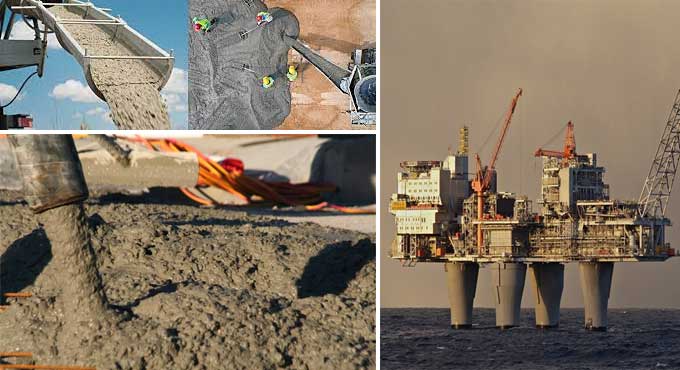
Know everything about Special Concrete

Recent advancements in building technology have allowed for the creation of concretes that are almost without these constraints and close to optimal circumstances. Modifying the microstructure of cement paste, adding more air to make it lighter, allowing flexibility in lowering or increasing setting pace, etc. are some approaches that improve its qualities.
Special Concrete
The word Special already has value, and in this context, it refers to the distinctive qualities of the concrete. The term special implies that the concrete is even stronger, more resilient, and more difficult to break. According to the specifications, special components are mixed through a unique technique to create the special concrete.
Technology is used to enhance the particular properties of a material, which is beneficial for certain kinds of works, for example, lightweight concrete roofs are preferred for buildings in order to save money while still maintaining the aesthetic aspect while taking into account the surroundings.
Types of special concrete
Lightweight type special concrete
Conventional concrete is usually made of coarse aggregate, and it has a high density, as well as a high thermal conductivity. However, lightweight concrete does not have these characteristics. As compared to normal concrete, lightweight concrete has an effective density reduction when compared to traditional concrete, which is due to its reduced density.
In order to achieve the reduction in weight, large amounts of air are introduced, as well as concrete that does not contain fines and lightweight aggregates that are used. Concrete voids as well as lightweight aggregates help to reduce the overall weight of the concrete, along with the aggregates themselves.
Ultra-lightweight type special concrete
Concrete of this kind has a density that falls within the range, and it is constructed of expanded polystyrene beads with a 6mm diameter, cement, and sand.
It is produced using a polymerization technique that requires spreading liquid styrene in an aqueous media and using a polymerization catalyst.
Vacuum type special concrete
In this form of concrete, excess air and water are removed with the use of suction. The volume of water to be removed and the water-cement ratio determines how long the treatment will take. Suction pressure in this concrete is one-third of atmospheric pressure, and the manufacturing process might be aided by the vibration of the concrete prior to vacuuming.
Mass type special concrete
In order to reduce the amount of cement in the concrete mix, large-sized aggregates with a low slump are utilized in this form of concrete. Due to the mixture being dry and hard as a result, immersion categories for compaction are used with high-power vibrators.
Since concrete is generally placed in open forms, it may result in a temperature rise during the mixing process due to the higher mass of the concrete. The temperature can be decreased by using cold water or ice during the mixing process in order to lower the temperature.
Applications of Special Concrete
Special concrete is used for a variety of purposes, including:-
1. Because nuclear concrete can absorb radiation, it is employed in radioactive environments. In addition, it serves as a barrier to stop the radiation from seeping outside and endangering people's lives.
2. Because of its high flexural strength, which minimizes the pavement's thickness and resistance to the effects of repetitive loading while preserving strength, this type of concrete is utilized in airport and highway pavements.
3. Because it is simple to form and shape roller compacted concrete, these materials are appropriate for use in earthen dams and gravity dams because they require less effort overall.
4. Hollow and solid bricks made from ultra-lightweight concrete are mainly used in highway construction, as well as lightweight sandwich panels and sub-base. It can be used for many more purposes than just thermal insulation since it is highly efficient.
Benefits of using this Special Concrete
Special concrete has a number of advantages, including:
1. It can be reshaped into any shape, much like regular concrete, but yet retaining its special qualities.
2. Since particular conditions are maintained throughout the preparation of such concrete, special concrete makes the construction more durable than standard concrete.
To learn more, watch the following video tutorial.
Video Source: Ekeeda
3. Extreme weather and tough environmental conditions are suited for special concretes.
4. Special concretes have low thermal properties. In these concretes, temperature management is even made easier.
5. As opposed to standard concrete, where each concrete type has a specific set time based on mix design, this concrete allows for the alteration of setting time by modifying the components.
Conclusion
Due to their distinctive qualities, special concretes are steadily gaining popularity in the building sector. Due to the mechanism's high cost, however, much study is required before it can be used more widely.
Special concretes are frequently utilized in affluent nations since the cost is not a significant consideration. However, it plays a significant role for developing and poor nations.


